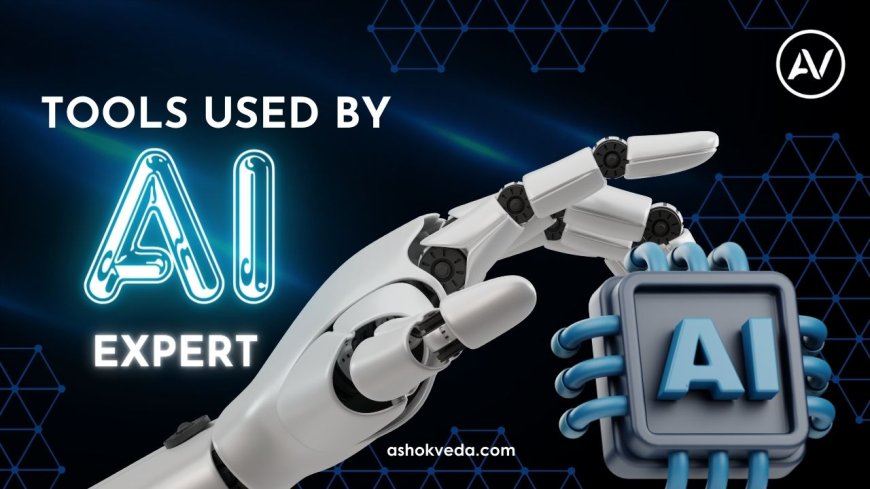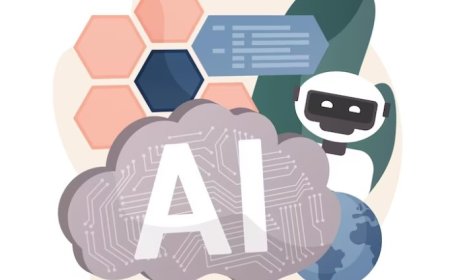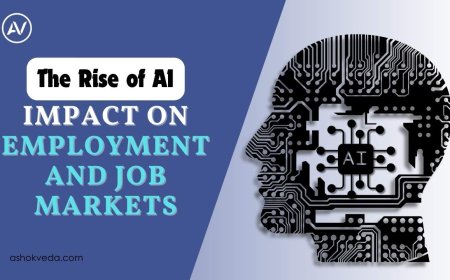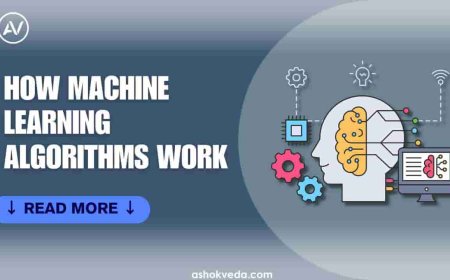Tools Used by an Artificial Intelligence Expert
Learn essential tools used by AI experts, including software, frameworks, and platforms for AI development and deployment.

Are you interested in the methods of Artificial Intelligence Expert uses to create all of the amazing technology and solutions, will look thoroughly into the many tools that an Artificial Intelligence Expert uses to bring their particular ideas to life. Whether you're a beginner interested in getting into the industry or just interested in artificial intelligence, understanding these tools will help you get a better idea of an AI expert's daily routine. you'll be understanding of the fundamental tools.
Core Tools for Artificial Intelligence Experts
An artificial intelligence expert designs and implements AI solutions using a variety of techniques are some of the main tools that are important in their toolkit
-
TensorFlow:
Google developed TensorFlow, an open-source machine learning platform. It is commonly used to create and train Deep Learning models. TensorFlow's flexibility and extensive community support make it a popular choice among AI experts. It can handle a variety of tasks such as object detection, image classification, and language processing.
-
PyTorch:
PyTorch is an open-source Machine Learning library created by Facebook's AI Research group. It is known for its constantly changing processing network. This feature allows simpler model creation and testing. PyTorch is very popular for research and is rapidly being utilized in production settings.
-
Keras:
Keras is a Python-based neural network API that interacts with TensorFlow, Microsoft Cognitive Toolkit, and Theano. It offers rapid prototyping, supports both convolutional and recurrent networks, and runs smoothly on both CPUs and GPUs.
-
Scikit-Learn:
Scikit-Learn is a free Machine Learning library for Python. It includes a variety of classification, regression, and clustering algorithms such as support vector machines, random forests, gradient boosting, k-means, and DBSCAN. It is compatible with the Python numerical and scientific libraries NumPy and SciPy.
-
Apache MXNet:
Apache MXNet is a deep learning framework that aims for efficiency and versatility. It provides quick model training and supports a variety of computer languages, including Python, Scala, and Julia. MXNet's ability to grow over several GPUs makes it the ideal solution for high-performance AI applications.
-
Python:
Python is the go-to language for artificial intelligence experts. Its simplicity and readability make it an excellent choice for both beginners and experienced professionals. Python boasts a rich ecosystem of libraries such as NumPy, SciPy, and Pandas, which are essential for data manipulation and analysis.
Known for its statistical computing capabilities, R is another popular language among AI experts. It provides a comprehensive set of tools for data analysis and visualization, making it a preferred choice for statistical modeling.
Supporting Tools for AI Experts
Aside from the core machine learning libraries, an Artificial Intelligence Expert uses different supporting tools to improve productivity and ensure effective model deployment.
-
Jupyter Notebooks:
Jupyter Notebooks are an interactive computing environment for creating and sharing documents with live code, equations, visualizations, and narrative text. They are extremely useful for exploratory Data Analysis, data cleaning, and model prototyping.
-
Docker:
Docker is a container-based tool that simplifies application development, deployment, and execution. Containers enable an AI expert to bundle a program with all of its components, such as libraries and dependencies, and ship it as a single package. This maintains uniformity across multiple contexts.
-
Git:
Git is a distributed version control system for tracking changes in source code during software development. Collaboration among AI professionals is vital for managing changes and branching out. for new features, and merge updates seamlessly.
-
Apache Hadoop:
Apache Hadoop is a framework that allows for the distributed processing of large data sets across clusters of computers using simple programming models. It's crucial for handling big data, which is often required for training robust AI models.
-
Apache Spark:
Apache Spark is an open-source unified analytics engine for big data processing, with built-in modules for streaming, SQL, machine learning, and graph processing. It is known for its speed and ease of use in big data analytics.
Data Manipulation and Analysis Tools
-
Pandas
Pandas is a Python library that provides data structures and functions needed to manipulate structured data seamlessly. It's widely used for data cleaning, transformation, and analysis, enabling AI experts to prepare datasets for modeling.
-
NumPy
NumPy is a fundamental package for scientific computing with Python. It supports large, multi-dimensional arrays and matrices, along with a collection of mathematical functions to operate on these arrays.
-
Matplotlib For data visualization
Matplotlib is the go-to library. It allows AI experts to create static, animated, and interactive visualizations in Python, making data analysis more intuitive and insightful.
Specialized AI Tools and Platforms
-
IBM Watson
IBM Watson is a suite of enterprise-ready AI services, applications, and tooling. It helps AI experts integrate AI into their business processes by providing pre-built applications and tools to develop custom AI solutions.
-
Google Cloud AI
Google Cloud AI provides a range of services including AutoML, which enables developers with limited machine learning expertise to train high-quality models. It also offers tools for building and deploying custom AI models.
-
Microsoft Azure AI
Azure AI provides a comprehensive suite of AI services, including Azure Machine Learning, Cognitive Services, and Azure Bot Services. These tools help AI experts build, deploy, and manage AI solutions at scale.
Machine Learning and Deep Learning Frameworks
Keras
Keras is an open-source software library that provides a Python interface for artificial neural networks. It acts as an interface for the TensorFlow library and allows for easy and fast prototyping of deep learning models.
Scikit-learn
Scikit-learn is a robust machine-learning library for Python. It features various classification, regression, and clustering algorithms, including support vector machines, random forests, and k-means, making it a staple tool for machine learning projects.
Theano
Theano is a Python library that allows AI experts to define, optimize, and evaluate mathematical expressions involving multi-dimensional arrays efficiently. It's particularly useful for tasks involving deep learning.
Visualization and Interpretation Tools
-
Tableau
Tableau is a powerful data visualization tool that helps AI experts analyze their data and create interactive and shareable dashboards. It is widely used for translating complex data sets into understandable insights.
-
Plotly
Plotly is an interactive graphing library for Python that makes it easy to create interactive plots and dashboards. It supports a wide range of chart types and is particularly useful for creating visually appealing data visualizations.
Artificial intelligence experts use a variety of tools to navigate the challenging setting of AI development. Every aspect of the AI workflow, from programming languages and libraries to specialized platforms and visualization tools, is important. These technologies not only increase efficiency but also allow AI professionals to push past the limits of creativity and produce meaningful AI solutions. As AI technology advances, staying current on the newest tools and trends is essential for anybody hoping to succeed in this dynamic profession.





































